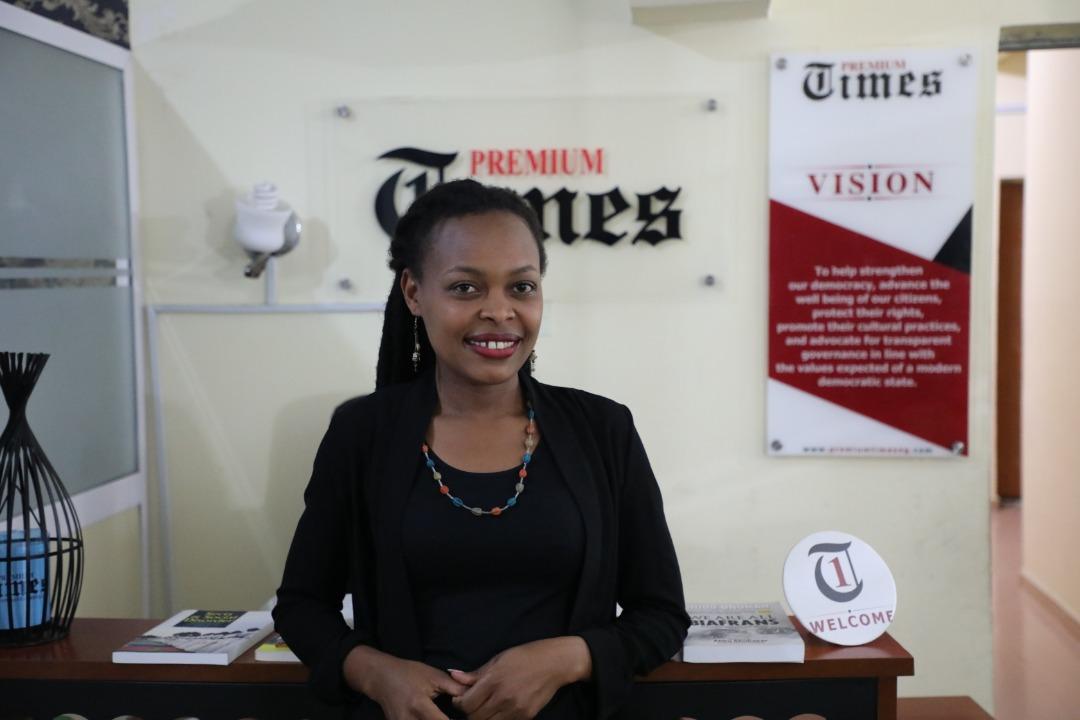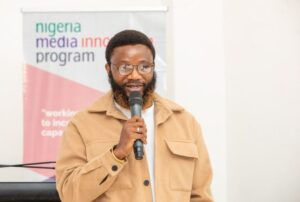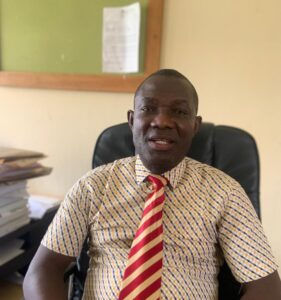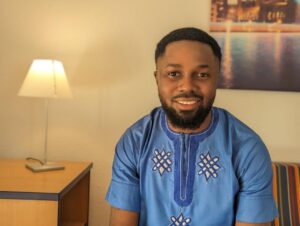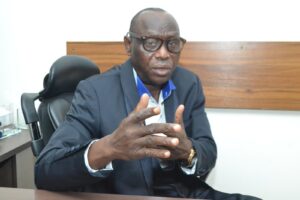Judy Nguta, Audience Development Manager of Conversation Africa based in Nairobi, Kenya was recently in Nigeria during which Lekan Otufodunrin and Rhoda Olorunfemi spoke with her on the operations of her organisation and other media issues.
Tell us more about The Conversation Africa
The Conversation Africa is a collaboration between journalists and the academic community. The academia, particularly university lecturers, write and then we have editors who work with them to edit this work and ensure that whatever they’ve written about is understandable to the general public.
The academics, who are majorly PHD holders, write within their areas of research and expertise.
Once their peer-reviewed work is published in academic journals, we ask them to write for The Conversation so that people who are not able to access these journals are able to access and read it.
The thinking behind it is that there are so much research and information in academic journals which very few people have access to. It makes more sense if people access that information. All content published on The Conversation is free to read and free to republish. This information could be accessed by individuals, policymakers, leaders and is useful in addressing current-day issues affecting the society as it offers possible evidence-based solutions.
The Conversation Africa is four years old, and has teams in Johannesburg, South Africa; Nairobi, Kenya; Lagos, Nigeria; Accra, Ghana and Dakar, Senegal.
It is a non-profit, public benefit organisation. It is supported by a number of donors as well as academic institutions.
So far what has been your operation in Nigeria with the academic and the media?
The reception in Nigeria is impressive.
There are several Nigerian academics writing for The Conversation so far, based both in Nigerian universities and others who are from Nigeria but based in universities abroad.
There is joy on the part of the academics to see their work being read by wider audiences than they would get from publishing on academic journals only.
To quote Oyewale Tomori, Retired Professor and Fellow at Nigerian Academy of Science, “The Conversation Africa has allowed for a better way of catching the local audience. The Conversations get to the point and stick to facts with strong evidence.”
For the media outlets, The Conversation Africa is providing a reliable source of content about the African continent. The content is free for republishing on both Print and Online, provided the republishers follow the given guidelines. These are available on the website https://theconversation.com/africa
Several Nigerian media outlets have been republishing from The Conversation Africa for a while now and we strive to provide relevant content every day. Others are hearing about the platform for the first time and they are quite happy to republish the content as it touches on the vital issues that matter to the Nigerian public.
It’s been such a pleasure meeting with some of the republishers here and introducing this product to them.
Tell us some of the stories that you’ve done in Nigeria
These are stories covering a variety of aspects like Arts and Culture, Health and Medicine, Politics, Environment, Technology, Business, Education and so on. We have had stories about the late Fela Kuti who is a very big name here in Nigeria. I think most of what I know about Fela Kuti was learnt from reading on The Conversation Africa. The platform gives everyone an opportunity to learn something new every day.
We’ve had stories about health, for example about the Ebola outbreak that affected Nigeria in 2015. People are able to refer to it; especially how Nigeria tackled that outbreak and it’s quite historical that it was dealt within a very short time.
We’ve done stories about current affairs in the country. During the concluded general elections; we had extensive coverage before, during and after the elections. One story was about ‘What Buhari has to do to take Nigeria’s economy to the next level’ which was read widely in Nigeria.
Why do you think Nigerian media should tap into this?
The aim of The Conversation Africa is to inform the general public and to make information that was previously not accessible become accessible to the public. The content comprises in-depth writing from academia who have an extensive wealth of knowledge.
The media should care because it’s a very perfect way of getting well-researched content that they can offer to their audiences.
In addition, Television and Radio have a chance to tap into this by interviewing the authors on the various programs that they host. The contacts of the authors are made public in the author profiles and journalists can contact them for interviews.
Is there any benefit for the media houses that republishes your report?
The ability to republish quality, well-researched and evidence-based content is a huge benefit which the current republishers have attested to. The content is provided free of charge. So it is a double win for media outlets; they don’t spend money to access the content, and they get to provide quality insights to their readers.
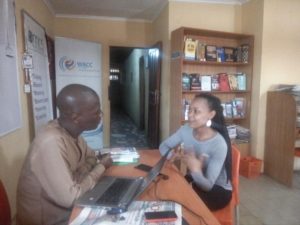
What do you think about the media landscape, what is changing about it?
The most notable change is of people adapting more to digital media. There is also a growing trend of readers searching for specific information, which is being driven by improved access to the internet.
Declining circulation of newspapers is another phenomenon. This is not just in Nigeria, or Africa, it is happening everywhere across the world.
Then there are media outlets that do not have enough resources to operate like they used to do. That means they probably don’t have all that funding to pay their staff, employ enough editors and to maintain beat reporting.
The Conversation Africa comes in to bridge that gap by providing specialized news content that is ready to use.
Tell us a bit about your own journalism background and what you have learnt and especially how you transited into digital
I have a Bachelors degree in Information Sciences from Moi University, Kenya. I did my internship in digital media and that was how I got immersed in the field. We didn’t particularly learn digital media in school because it had not been included in the curriculum.
The beauty of digital media is that there’s something new coming up every often, making for a constant learning cycle. It is what I have done since my internship and for my first job until I joined The Conversational Africa which is also a web-based media platform.
What’s your advice to journalism students?
There is a wide range of opportunities in the world of media for people who want to venture into a journalism career. I know there are people who have a preference for print or broadcast media, and there are those who have their preference for digital media. My advice would be to create a balance because in the job field you might not get exactly what you want. You may be inclined to digital but you end up in broadcast and vice versa, so it’s good for people in school right now to balance so that they are able to fit across the board and be able to handle any transition.
Any skill you think one should pay attention to survive online?
Mostly what I tell people is that you need an open mind because whatever system you are using now might just be obsolete in two or three years. You need to be ready to learn new stuff quite often. You need to be able to adapt to new technology when it comes, to be able to shift to it effortlessly.
On survival, which business model works?
That goes down to understanding the environment that one is operating in. The situation could be different from one country to the other, but across board partnerships and collaborations work well. It’s easy to launch a website, start writing and updating news on a daily basis. But how does the business survive? Advertising may not be sufficient to keep the business afloat.
So many news websites are coming up with the expectation that “if I create this website, in one year’s time I could make the money out of it.” While some websites succeed, others don’t.
There is no winner takes it all and therefore survival calls for constant innovation in order to tap the target audiences and possible partners. 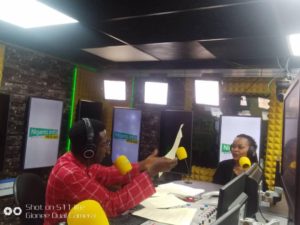
What generally is your impression about the Nigerian media?
Nigeria has a wide variety of media, which means people have options to choose from; ranging from newspapers, television, radio, websites, blogs and news aggregation apps.
Newspapers have an online presence; these two platforms perfectly complement each other.
Social media is also quite vibrant.
The media fraternity is largely receptive to new ideas, this is a vital element for progress. So the future is bright for Nigerian media.
